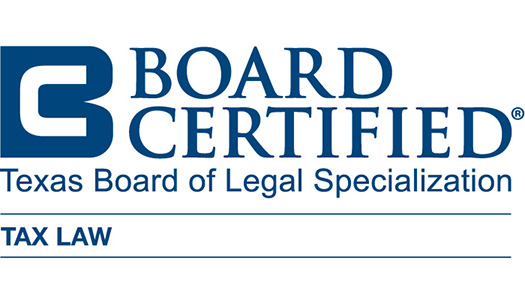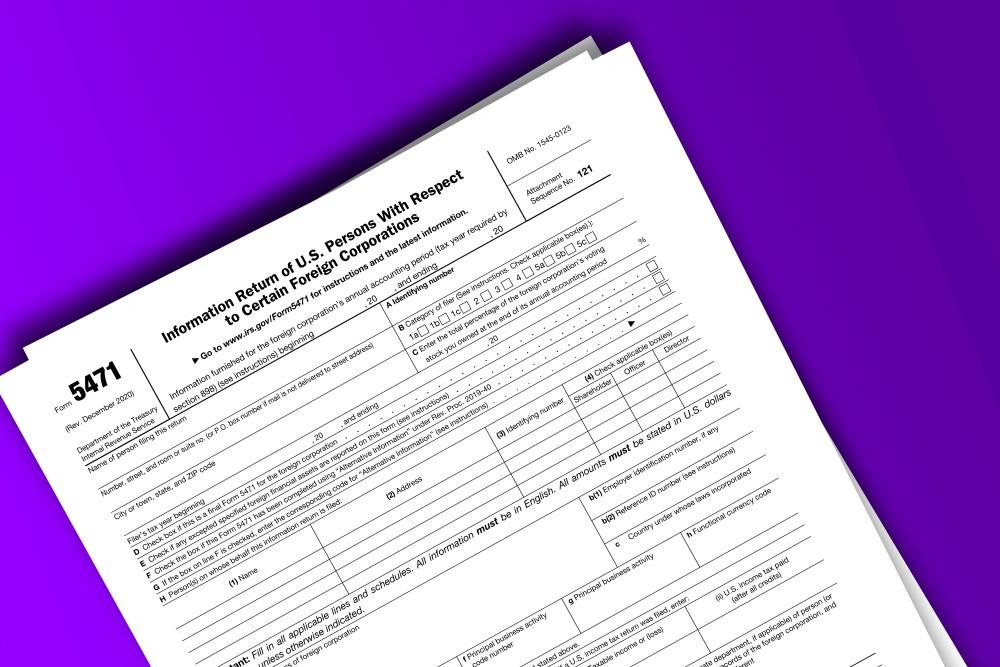Introduction Dogecoin, Shiba, Bitcoin, Ethereum. If none of those sound familiar, then you might have been living under a rock the past few years. From online forums to mainstream news networks, crypto has been a hot topic. We have seen people lose fortunes to crypto, while others got rich seemingly overnight. Because crypto is such a new technology, the final verdict on some of the more complex tax issues related to it are up in the air. While the future holds many uncertainties on how crypto tax issues will be litigated, income that comes from crypto is taxable income like...
Picture this: you are daydreaming about your significant other as you shop for an engagement ring at Tiffany’s. You feel pure bliss as you reminisce about the many years you have spent with them, and then imagine the hopefully numerous years you will spend together in the future. As you look at different rings, imagery of white picket fences, dogs, and 2.5 kids running around flood your mind. In the haze of love and emotion, you are forgetting one thing: your potential soulmate may be drowning in tax debt. With the IRS hiring 87,000 new agents, it is no...
A wiseman once said that two things in life are certain: (1) that the government will tax you up until, during, and after your death; and (2) they will make paying taxes as confusing as possible, giving you a headache in the process. Of course, I am paraphrasing a bit. The confusion of endless streams of new tax provisions come with each new administration, and the current one is no exception. Fortunately, at The Wilson Firm, we sift through the mess created by governmental entities like the IRS so you can worry about taxes a bit less. Effective August 16,...
Whether you’re for it or against it, the question of what should be done about the almost $2 trillion in student loan debt spread amongst almost 50 million borrowers is a point of political contention. Some people say that we should leave things as they are, and let people figure out how to manage their own student loan debt. Others say that all of the student loan debt should disappear and give all borrowers a clean slate. Finally, those remaining have varying ideas of exactly how much student loan forgiveness is ideal. Wherever you fall on the...
Tax levies are scary and are extremely debilitating for all taxpayers. Levies involve the actual seizure of property to satisfy a tax debt. Under Internal Revenue Code (“IRC”) 6331(a), the IRS has the right to seize and sell “all property and rights to property.” This means real or personal property and tangible or intangible property, including items such as a personal vehicle and residence, as well as wages, investment assets, receivables, and bank accounts. When the IRS first levies a taxpayer, the agency will follow a set process: The tax must first be assessed;The taxpayer will be...
Under the Bank Secrecy Act, formerly known as the Currency and Foreign Transactions Report Act of 1970, Congress enacted the requirement that certain foreign bank and financial accounts must be reported by United States taxpayers by filing a Report of Foreign Bank and Financial Accounts (“FBAR”). What is an FBAR? An FBAR is a Foreign Bank Account and Financial Asset Report, which is filed on FinCEN Form 114. Congress’s rationale for requiring the reporting of foreign bank accounts and financial assets is simple – to prevent tax evasion. Although the IRS retains civil FBAR enforcement authority, FinCEN Form 114...
In Texas and eight other states, community property laws govern the interests of spouses in property and income acquired or earned during their marriage. In general, community property laws affect how a couple will figure their income on their federal income tax returns if they are married, yet file separate returns. While there are benefits to filing a single tax return – married filing jointly – sometimes it can be to the couple’s advantage to file separate returns. Ultimately, however, filing of separate returns can result in one spouse having to disproportionately pay taxes. Under Internal Revenue Code (“IRC”) §...
With the COVID-19 pandemic, many taxpayers had the luxury of working from home. Companies have since changed their in-office policies to allow employees the continued ability to work remotely. Some employers have even altered their policies entirely, allowing employees to permanently work remotely. With all the extra time no longer spent in traffic or at the water cooler, some people have seized the opportunity to chase their dreams and take on new hobbies or open a side business. It is important to understand the tax consequences of these side businesses. According to Internal Revenue Code (“IRC”) § 162, ordinary and necessary...
I Making headlines over the past few months has been the Biden administration’s Infrastructure Plan. On September 15, 2021, the House Ways and Means Committee advanced part of the Build Back Better Act, which includes proposed tax changes expected to generate over $2 trillion in federal funds. In total, the House bill is expected to cost $3.5 trillion. In August, the Senate also passed its version of the infrastructure bill, which is limited to $1 trillion in federal spending. According to House Speaker Nancy Pelosi, Biden’s $4.5 trillion infrastructure plan is expected to pass by the end of September. Changes made...
If you fail to qualify for Innocent Spouse Relief under Treasury Regulation (“Treas. Reg.”) § 1.6015-2 and Separation of Liability Relief under Treas. Reg. § 1.6015-3, the good news is that you may still be entitled to tax, interest, and penalty assistance through Equitable Relief. What is Equitable Relief? General Conditions for Equitable Relief: According to Revenue Procedure 2000-15, the following threshold conditions must be satisfied before the IRS will consider a claim for Equitable Relief under IRC § 6015(f): The requesting spouse is not eligible for Innocent Spouse Relief, Separation of Liability Relief, or relief from liability arising from community...
When filing a joint tax return, married taxpayers are often privy to certain tax benefits. Generally, married taxpayers take advantage of a higher standard deduction and a lower tax rate when filing their taxes together. However, as a result of a joint filing, both taxpayers are equally responsible for the possible liability that comes with joint filing status. But what if one spouse wasn’t exactly honest about their income when filing the tax return, and the other spouse didn’t know? By requesting Innocent Spouse Relief, a spouse can be relieved of the responsibility for paying tax, interest, and penalties if...
So, you failed to file or failed to pay your taxes for the first time in your life and now the Internal Revenue Service is hitting you with a penalty. Guess what? With the First-Time Penalty Abatement waiver, this mishap may be forgiven. History of the First-Time Penalty Abatement Waiver Back in 2001, the IRS introduced the First-Time Penalty Abatement waiver (“FTA”) to assist taxpayers dealing with federal tax issues. The purpose of FTA is to ensure compliance for typically responsible taxpayers by providing a one-time waiver; however, FTA can only abate three types of penalties: Failure to Pay (IRC §...
The Collection Statute Expiration Date, often referred to as the “CSED”, is the maximum time period the IRS will look back to collect unpaid taxes. Similar to a statute of limitation, where anything beyond that date is off-limits, the CSED is 10 years from the date the tax was originally assessed. For example, if you filed a tax return for the 2018 tax year on or before April 15, 2019 and owed tax with that return, those taxes were deemed to have been assessed on April 15, 2020. The CSED date on any unpaid amounts would be April 15, 2029....
Two of the most common payment options for delinquent tax debts are installment agreements and offers in compromise. Let’s discuss theses options below, along with the key considerations for choosing which route might be best in a taxpayer’s particular case. If you owe the IRS, and are considering how to pay off the debt, contact The Wilson Firm. We have both the experience and expertise to make the right decision. IRS Installment Agreement: An installment agreement allows taxpayers the opportunity to pay their debts in smaller, more manageable amounts. Installment agreements typically consist of equal monthly payments. The number of monthly...

The Wilson Firm is excited to announce that Managing Attorney Lee Wilson is officially certified by the Texas Board of Legal Specialization in Tax Law!
There are only 191 Board Certified Tax Law Lawyers in the entire state of Texas.
It's much more common than you might think. We have countless clients walk through our doors, asking what they should do when they haven't filed a tax return in several years (and in some cases, MANY years). Many are shocked to learn that their only concern isn't the amount that will be due and payable to the IRS after the accountants prepare and file these returns. A much bigger concern in some cases is the potential criminal liability that attaches when taxpayers purposefully don't file a tax return. Under I.R.C. section 7203, willfully failing to file a tax return is a...
In March, the IRS announced that it will be closing the Offshore Voluntary Disclosure Program ("OVDP"), shutting the door on the best opportunity for taxpayers with previously undisclosed foreign accounts and assets to come forward without facing civil penalties that can amount to 3-4 times the value of their total foreign accounts and/or assets. The first iteration of the IRS' OVDP program was made available in 2009, and since then, the IRS has made considerable progress (through the signing of many intergovernmental agreements with other countries and the increased information sharing resulting from them) in identifying taxpayers with unreported offshore accounts and/or assets. On top...
Pretty interesting article from Jeff Simpson of taxprotoday.com outlining the various reasons different people either hate, fear, or just simply try to avoid the Internal Revenue Service. What may surprise some is that one particular study demonstrates that an individual's political party affiliation seems to coorelate pretty well with their overall opinion of the agency. Click here to take a look. As a practicioner that has dealt with the agency and its employees for years now, there's no doubt the massive budget cuts and personnel reductions over the last few years have certainly had an impact on the IRS' handling of its administrative functions, including in the tax audit and appeals arena where we deal...







